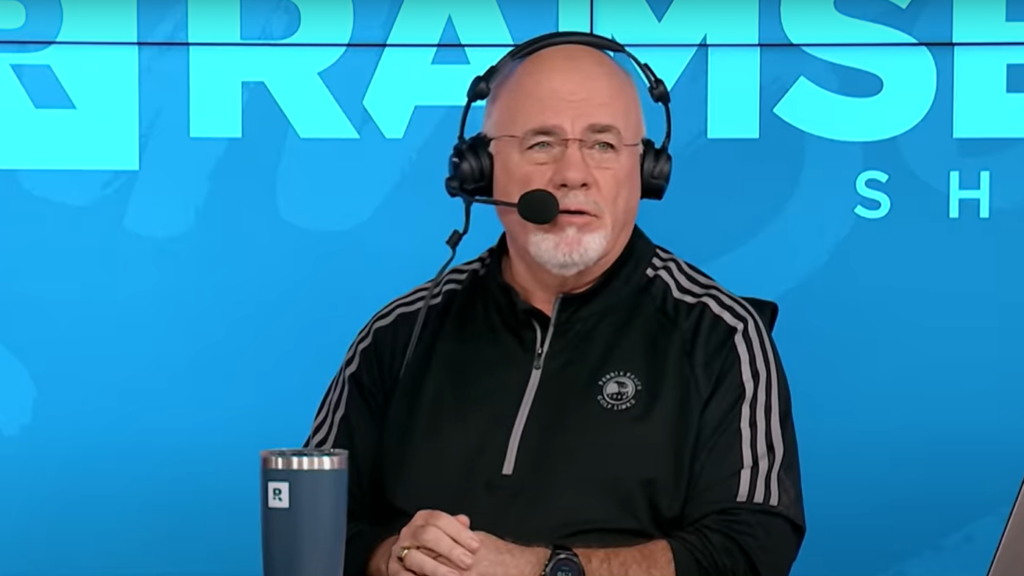Despite being a self-professed car enthusiast, financial guru Dave Ramsey declares cars as a significant financial drain. Through a series of TikTok videos, he underlines the pivotal decision to purchase vehicles with cash and the financial drain posed by car payments.
Ramsey compares homes, which generally appreciate, and cars, which depreciate, stating, “I guarantee you’ll be broke your whole life as long as you stay in car payments because it’s the most expensive thing you buy that goes down in value.”
Don’t Miss:
He points out the irony of high car payments for luxuries, such as DVD players, at the expense of significant financial goals like college funds. Highlighting the societal shift that regards minivans as status symbols, Ramsey questions the wisdom behind such spending, especially when a vehicle like the Honda Odyssey commands a price comparable to luxury brands.
Ramsey shares insights on the spending habits of millionaires when it comes to vehicles. In a TikTok video he said, “The average millionaire drives a four-year-old car with 41,000 miles on it, and of course, it’s paid off.” This habit is starkly different from the prevailing consumer behavior of accepting car payments that now average over $500 a month for 84 months.
He emphasizes that these individuals have not had car payments in decades, a factor he attributes to their financial success.
Ramsey calculates the opportunity cost of such payments, suggesting that investing the same amount from age 30 to 70 could yield around $5 million in a Roth IRA, thus illustrating the trade-off between short-term satisfaction and long-term wealth. “I hope you like your car,” Ramsey quips, underscoring the trade-off between immediate satisfaction and long-term financial growth.
Ramsey’s advice extends to the practice of purchasing vehicles, where he cautions against buying new because of the steep depreciation cars face within the first four years, losing 60-70% of their value. He proposes buying a quality used car as a financially sound alternative, except for individuals whose net worth exceeds $1 million, for whom the depreciation of a new car poses a lesser impact.
Through these observations, Ramsey’s message is clear: the path to financial well-being involves making informed, prudent decisions about one of the most common yet significant expenditures — vehicles. His emphasis on avoiding car payments and considering the financial implications of vehicle depreciation serves as a guide for those aspiring to financial success.
Trending: For many first-time buyers, a house is about 3 to 5 times your household annual income – Are you making enough?
In a Ramsey Show video, he offered advice that illuminated a common pitfall among the middle class: owning two expensive cars with hefty monthly payments. “The way you know someone’s going to stay middle class is when they have two very nice cars with obvious five to seven hundred dollar payments sitting in front of a middle-class house,” Ramsey explained. He described this scenario as a “huge indicator” that such individuals would remain in the middle class until they alter this habit.
Addressing concerns about purchasing used vehicles, Ramsey offers reassurance about their reliability. “If you’re driving a car you bought two months ago, it’s now a used car,” he argues, pointing out that modern vehicles, when properly maintained, can last between 200,000 to 300,000 miles. This durability, he suggests, should alleviate fears of buying pre-owned vehicles.
Ramsey’s advice resonates with a broader financial philosophy that prioritizes long-term wealth accumulation over immediate gratification. His perspective encourages individuals to consider the true cost of their purchases and how those decisions align with their financial goals.
Consulting a financial adviser can further enhance the benefits of Ramsey’s approach to managing vehicle expenses. A professional advisor can offer personalized investment strategies tailored to individual financial situations and goals, potentially maximizing the returns on the money saved from avoiding new car payments. They can help navigate the complexities of investment options, tax implications and retirement planning, ensuring that decisions like buying a used car instead of a new one align with a comprehensive financial plan.
Read Next:
*This information is not financial advice, and personalized guidance from a financial adviser is recommended for making well-informed decisions.
Jeannine Mancini has written about personal finance and investment for the past 13 years in a variety of publications including Zacks, The Nest and eHow. She is not a licensed financial adviser, and the content herein is for information purposes only and is not, and does not constitute or intend to constitute, investment advice or any investment service. While Mancini believes the information contained herein is reliable and derived from reliable sources, there is no representation, warranty or undertaking, stated or implied, as to the accuracy or completeness of the information.
“ACTIVE INVESTORS’ SECRET WEAPON” Supercharge Your Stock Market Game with the #1 “news & everything else” trading tool: Benzinga Pro – Click here to start Your 14-Day Trial Now!
Get the latest stock analysis from Benzinga?
This article Dave Ramsey Guarantees If You Have A Car Payment, ‘You Will Be Broke Your Whole Life’ And Says The Average Millionaire Drives A 4-Year-Old Car With 41,000 Miles — Investing The Payment Could Make You $5 Million Instead originally appeared on Benzinga.com
© 2024 Benzinga.com. Benzinga does not provide investment advice. All rights reserved.










